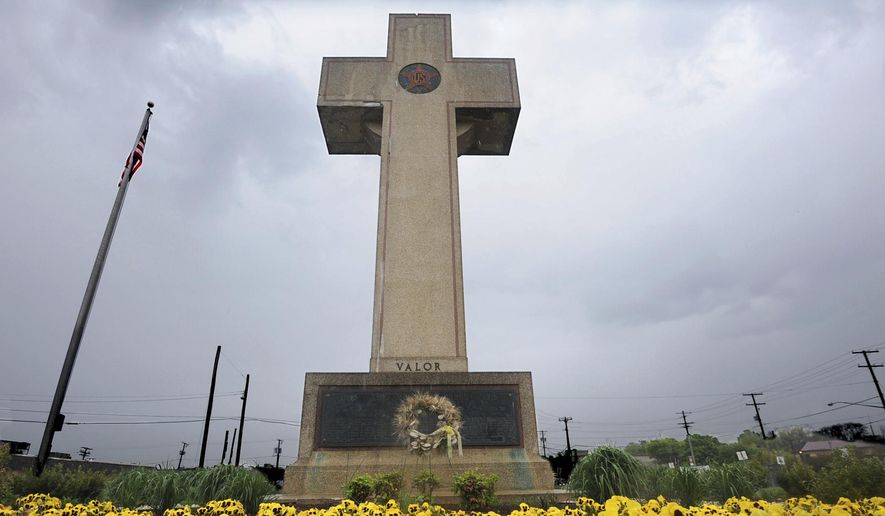The Supreme Court said Friday it will hear the case involving a cross-shaped war memorial in Bladensburg, adding a high-profile religious liberty case to what had otherwise been a rather controversy-free list of cases so far this term.
At stake in the case are perhaps thousands of other war memorials with potential religious symbolism found on public property throughout the country.
The Maryland memorial, which lists the names of 49 local men who lost their lives in World War I, is in the shape of a Celtic-style cross and sits on land maintained by the Maryland-National Capital Park and Planning Commission.
It stood for decades without controversy until this decade, when the American Humanist Association sued, arguing the government’s maintenance crossed the line into assisting a religious establishment.
A lower court ruled against the group, which advances non-religious ideals, but the 4th U.S. Circuit Court of Appeals stepped in last year and ruled the 40-foot tall cross was unconstitutional.
In a 2-1 decision, the panel called crosses “the core symbol of Christianity” and said no amount of historical context can change that.
“We conclude that a reasonable observer would fairly understand the cross to have the primary effect of endorsing religion,” the majority ruled.
The cross’s defenders, though, say the memorial shape was chosen to mirror the grave markers of Christian troops killed and buried overseas, and the purpose is less a religious statement than a commemoration of the dead.
They also point out that the cross was built on private land, which was only later conveyed to a government.
“By compelling its removal, destruction or dismemberment, the panel’s decision will necessitate an act of shocking disrespect for the brave souls of Prince George’s County who died fighting for their country in World War I,” wrote Neal Katyal, a former Obama administration solicitor general who has argued the case for the park and planning commission.
The defenders said the legal test should be whether the cross appears to try to coerce people into a belief — and they said there’s little chance someone would conclude that from the Bladensburg memorial.
If the Bladensburg cross were deemed unconstitutional, it would mean memorials such as the cross recording where English colonists landed at Cape Henry in Virginia or another World War I memorial in Towson, Maryland, would have to go, the Maryland commission argued.
The case had been pending before the Supreme Court justices since August, but a decision on hearing it had been delayed until Friday.
• Stephen Dinan can be reached at sdinan@washingtontimes.com.




Please read our comment policy before commenting.